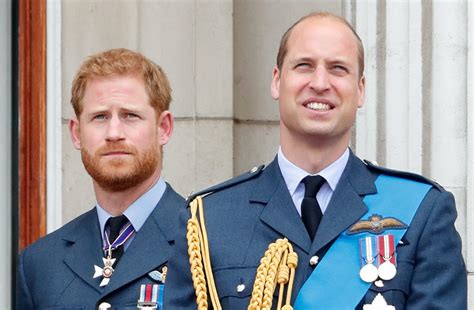
Prince William has publicly addressed the ongoing rift with his brother, Prince Harry, acknowledging the situation as “complicated” but emphasizing their enduring familial bond. The Prince of Wales made the remarks during a recent engagement, offering a rare glimpse into the brothers’ strained relationship, stating, “It’s complicated, but we’re family, and I’ll always be there for him.”
Prince William’s comments come after years of speculation and public scrutiny surrounding the relationship between the two sons of King Charles III. The tension reportedly escalated following Harry’s marriage to Meghan Markle and their subsequent decision to step down as senior members of the Royal Family in 2020.
The Duke and Duchess of Sussex’s departure, dubbed “Megxit” by the media, and their subsequent interviews, including a highly publicized sit-down with Oprah Winfrey, further strained relations, particularly after allegations of racism within the Royal Family surfaced. Harry’s memoir, “Spare,” released in January 2023, provided a detailed and often critical account of his life within the monarchy, further exacerbating the rift with his brother and father.
While Prince William has largely remained silent on the matter, his recent statement signals a subtle shift in approach. The admission of complexity suggests an acknowledgment of the deep-seated issues between the brothers, while the reaffirmation of family ties hints at a desire for reconciliation, however distant that may seem.
“We’re family,” Prince William stated, reinforcing the immutable connection despite current difficulties. He added, “I’ll always be there for him,” a statement that resonates with both hope and a recognition of the responsibility that comes with their shared history and heritage.
The statement, though brief, is significant. It offers a human perspective on a situation that has often been viewed through the lens of royal duty and public perception. The acknowledgement of difficulty humanizes both William and Harry, reminding the public that even within the extraordinary context of the Royal Family, personal relationships can be subject to challenges and complexities.
Royal experts have suggested that William’s remarks may reflect a broader strategy within the Royal Family to manage public perception and address the ongoing narrative surrounding the brothers’ relationship. With King Charles III’s reign underway, and with Prince William’s eventual succession, the need to present a unified front, or at least to mitigate the appearance of familial discord, is paramount.
The timing of Prince William’s statement is also noteworthy. It comes amid heightened media interest in the Royal Family, fueled by various events and anniversaries. By addressing the Harry feud directly, even in a limited manner, Prince William may be attempting to control the narrative and prevent further speculation or misinterpretations.
The public reaction to Prince William’s comments has been mixed. Some have praised his willingness to acknowledge the situation and his commitment to family, while others remain skeptical, pointing to the deep divisions that have been publicly aired. Regardless of the immediate response, the statement marks a significant moment in the ongoing saga of the relationship between the two princes, and it may offer a glimpse into the future direction of their interactions.
The challenge moving forward will be navigating the complexities of personal relationships within the framework of royal duty and public expectations. While Prince William’s statement offers a glimmer of hope for eventual reconciliation, the path toward healing is likely to be long and arduous. The brothers must find a way to balance their individual needs and desires with the demands of their shared heritage and the responsibilities that come with being members of the Royal Family.
Background of the Feud
The roots of the feud between Prince William and Prince Harry are multifaceted and have evolved over time. Initially, the brothers shared a close bond, forged in the aftermath of their mother Princess Diana’s tragic death in 1997. In the years that followed, they supported each other through the challenges of growing up in the public eye and navigating the pressures of royal life.
However, the dynamic between them began to shift as they entered adulthood and pursued different paths. William, as the heir to the throne, was increasingly groomed for leadership, while Harry carved out his own role, often focusing on philanthropic endeavors and military service.
The introduction of Meghan Markle into Harry’s life marked a significant turning point. From the outset, Meghan faced intense media scrutiny and, according to Harry, encountered instances of prejudice and insensitivity within the Royal Family. Harry’s protective instincts towards his wife and his frustration with the institution’s handling of the situation led to growing tensions with his family, particularly with William.
The decision by Harry and Meghan to step down as senior members of the Royal Family in 2020 further exacerbated the rift. Their departure, driven by a desire for greater independence and a less restrictive life, was met with disappointment and disapproval by some members of the Royal Family.
The subsequent interviews and revelations made by Harry and Meghan, including the Oprah Winfrey interview and the publication of Harry’s memoir “Spare,” intensified the conflict and exposed deep divisions within the Royal Family. The allegations of racism, the criticisms of the institution, and the personal attacks on individual members created a climate of mistrust and resentment.
In “Spare,” Harry detailed several specific incidents that contributed to the deterioration of his relationship with William, including a physical altercation in which William allegedly attacked him. He also accused William and other members of the Royal Family of leaking information to the press and of failing to adequately support Meghan.
The cumulative effect of these events has been a significant breakdown in communication and trust between the brothers. While Prince William’s recent statement suggests a willingness to acknowledge the complexities of the situation and to reaffirm family ties, the path toward reconciliation remains uncertain.
Royal Experts’ Perspectives
Royal experts have offered various perspectives on the feud between Prince William and Prince Harry, analyzing the underlying causes, the potential consequences, and the possible paths toward reconciliation.
Some experts believe that the feud is rooted in the inherent tensions between the heir to the throne and the “spare,” a dynamic that has historically played out within royal families. William, as the future king, has always been subject to greater scrutiny and responsibility, while Harry has had more freedom to pursue his own interests. This difference in roles and expectations may have contributed to a sense of rivalry and resentment.
Other experts point to the influence of Meghan Markle as a catalyst for the feud. Meghan’s outsider status and her unconventional approach to royal life clashed with the established norms and traditions of the Royal Family. Her experiences with media scrutiny and alleged prejudice led to a sense of isolation and defensiveness, which in turn strained her relationship with other members of the family.
Some experts also believe that the Royal Family’s handling of the situation exacerbated the conflict. They argue that the institution failed to adequately support Meghan and to address the issues of racism and prejudice that she and Harry raised. This perceived lack of support fueled Harry’s frustration and ultimately led to their decision to step down as senior members of the Royal Family.
Looking ahead, royal experts are divided on the prospects for reconciliation between the brothers. Some believe that the deep divisions and the public airing of grievances have made it difficult, if not impossible, to fully repair the relationship. Others remain more optimistic, arguing that the enduring bond of family and the shared experiences of growing up together may eventually lead to healing.
However, most experts agree that reconciliation will require a willingness from both William and Harry to acknowledge their respective roles in the conflict, to forgive past hurts, and to prioritize the needs of the family over personal grievances. It will also require a concerted effort from the Royal Family to address the underlying issues of racism, prejudice, and institutional inflexibility that have contributed to the feud.
Public Perception and Media Coverage
The feud between Prince William and Prince Harry has captivated the public and dominated media coverage for years. The story has resonated with people around the world, tapping into universal themes of family dynamics, sibling rivalry, and the challenges of navigating personal relationships within the public eye.
The media has played a significant role in shaping public perception of the feud. The constant scrutiny, the sensationalized headlines, and the often-biased reporting have amplified the conflict and contributed to a climate of division and animosity.
The public reaction to the feud has been mixed. Some have sided with William, viewing him as the responsible heir to the throne who is upholding the traditions of the Royal Family. Others have sided with Harry, admiring his willingness to challenge the status quo and to prioritize his own happiness and the well-being of his family.
The release of Harry’s memoir “Spare” further polarized public opinion. The book’s detailed and often critical account of his life within the monarchy sparked intense debate and prompted a wide range of reactions. Some praised Harry for his honesty and vulnerability, while others accused him of betraying his family and exploiting his personal experiences for financial gain.
The ongoing media coverage and public debate surrounding the feud have had a significant impact on the Royal Family’s image and reputation. The constant scrutiny and the negative publicity have damaged the institution’s standing in the eyes of some, particularly among younger generations.
Moving forward, the Royal Family will need to carefully manage its public image and to address the concerns and criticisms that have been raised in the wake of the feud. This will require a willingness to be more transparent and accountable, to engage with the public in a more meaningful way, and to demonstrate a commitment to diversity, inclusion, and social justice.
The Future of the Royal Family
The feud between Prince William and Prince Harry has raised important questions about the future of the Royal Family. As the institution navigates a period of transition, with King Charles III taking the throne and Prince William preparing to assume the role of heir, the need for unity and stability is paramount.
The feud has exposed deep divisions within the Royal Family and has highlighted the challenges of adapting to a changing world. The institution must find a way to balance its traditional roles and responsibilities with the demands of modern society.
This will require a willingness to embrace change, to be more inclusive and representative, and to address the concerns of younger generations. It will also require a renewed focus on the values of service, duty, and compassion that have long been associated with the Royal Family.
The relationship between Prince William and Prince Harry will play a significant role in shaping the future of the monarchy. If the brothers can find a way to reconcile and to work together, they can strengthen the institution and ensure its continued relevance in the years to come.
However, if the feud persists, it could further damage the Royal Family’s image and undermine its ability to fulfill its duties. The challenge for William and Harry is to find a way to balance their personal needs and desires with the demands of their shared heritage and the responsibilities that come with being members of the Royal Family.
Prince William’s recent statement acknowledging the complexity of the situation and reaffirming his familial bond with Prince Harry offers a glimmer of hope for the future. It suggests a willingness to address the ongoing conflict and to prioritize the needs of the family.
Ultimately, the future of the Royal Family depends on its ability to adapt, to evolve, and to remain relevant in a changing world. The feud between Prince William and Prince Harry is a reminder of the challenges that the institution faces, but it is also an opportunity for growth and renewal.
Impact on King Charles III’s Reign
King Charles III ascended to the throne at a time of significant challenges and transitions for the Royal Family. The passing of Queen Elizabeth II marked the end of an era, and Charles has inherited the responsibility of guiding the monarchy into the future. The ongoing feud between his sons, Prince William and Prince Harry, undoubtedly complicates his efforts to consolidate his reign and maintain stability within the institution.
The public airing of grievances and the deep divisions within the family have the potential to distract from King Charles’s own agenda and priorities. He must navigate the delicate balance of addressing the family’s internal conflicts while also focusing on the broader issues facing the nation and the Commonwealth.
The feud can also impact the public’s perception of the monarchy under Charles’s leadership. The public’s perception can affect the monarchy’s legitimacy and relevance. The King needs to demonstrate strong leadership and a commitment to unity in order to maintain public trust and support.
King Charles has consistently expressed his love for both of his sons, and he likely hopes for a reconciliation between them. However, he also recognizes the importance of maintaining the stability and integrity of the institution. He must find a way to balance his personal feelings with his responsibilities as head of the monarchy.
His ability to manage this complex situation will be a key test of his leadership. The way he handles the feud between William and Harry will have a lasting impact on the future of the Royal Family and on his own legacy as king.
FAQ: Prince William and Prince Harry Feud
1. What are the main reasons for the feud between Prince William and Prince Harry?
The feud stems from a complex combination of factors, including differences in their roles within the Royal Family, Harry’s marriage to Meghan Markle and her subsequent treatment by the media and some members of the Royal Family, Harry and Meghan’s decision to step down as senior royals, and the revelations made in interviews and Harry’s memoir “Spare.” These events have led to a breakdown in communication and trust between the brothers.
2. What did Prince William say about the feud in his recent statement?
Prince William acknowledged the situation as “complicated” but emphasized that they are family and that he will always be there for Harry. The specific quote: “It’s complicated, but we’re family, and I’ll always be there for him.”
3. How has the media covered the feud, and what impact has it had?
The media has extensively covered the feud, often sensationalizing the conflict and contributing to a climate of division. This coverage has impacted public perception of both princes and the Royal Family as a whole, potentially damaging the institution’s reputation, especially among younger generations.
4. What are royal experts saying about the potential for reconciliation between William and Harry?
Royal experts hold varying opinions. Some are pessimistic, citing the deep divisions and public airing of grievances. Others are more optimistic, believing the enduring bond of family could lead to healing. Most agree that reconciliation requires willingness from both to acknowledge their roles in the conflict, forgive past hurts, and prioritize family needs over personal grievances.
5. How might the feud impact the future of the Royal Family under King Charles III?
The feud presents challenges for King Charles III, potentially distracting from his agenda and impacting public perception of the monarchy. It underscores the need for unity and stability within the Royal Family. Charles’s handling of the feud will be a key test of his leadership and will have a lasting impact on the institution’s future.









